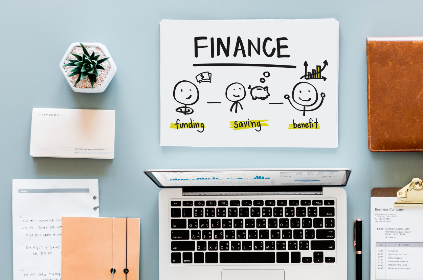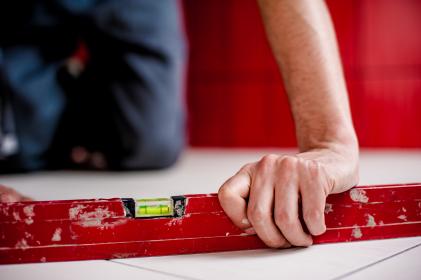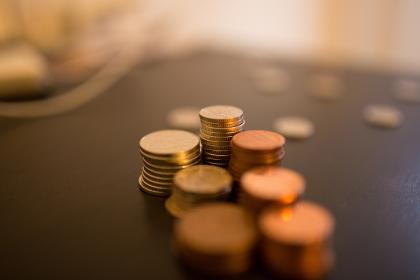Should You Ever Tap Into Your 401k?
 You’ve been eyeing your 401k balance for a while, thinking about how much good that money could do for you in other aspects of your life. Seeing all the money just sitting there for the future when it could make your present situation a lot more pleasant can be mighty tempting.
You’ve been eyeing your 401k balance for a while, thinking about how much good that money could do for you in other aspects of your life. Seeing all the money just sitting there for the future when it could make your present situation a lot more pleasant can be mighty tempting.
But are there any circumstances in which you should go for it and raid your 401k?
Experts generally caution against borrowing against or cashing out any of your 401k, although there are a few experts who say it’s not a bad idea in some circumstances.
Here are some situations where you might want to consider breaking with tradition and taking a little out of your 401k.
Huge Credit Card Debt
Some people find themselves in over their heads when it comes to credit card debt. It’s not hard to do. It can seem to sneak up on you and before you know it, you’re wondering how you’re ever going to pay it all off.
If you’re the type who is never going to stop overspending, even if you do pay those cards off, you should leave your money in your 401k and find some other option for paying off that balance. Take out a second job, sell some possessions, or ask for a raise at work.
If you truly feel you’ve learned your lesson and you don’t see any other way out for you, borrowing from your 401k may make sense. That’s especially true if the APR you’re paying has reached epic proportions.
But whatever you do, if you borrow from your 401k, make sure you pay it back within the time allotted, or you’ll have to pay a penalty. And stop using those credit cards!
Your Credit Score Will Take a Hit
If you’ve lost your job or you’re having such difficulty making your monthly payments that it’s just a matter of time before your credit score takes a huge drop because of late payments, you may want to look into cashing out a little of your 401k. Try to take only the amount that you need to get by and leave the rest in there.
While you will pay a penalty for taking that money out early, it still may be less than you’ll have to pay over the long term for missed payment penalties from your debtors and from not qualifying for the best interest rates in the future because of your plunging credit score.
You’re in Danger of Losing Your Vehicle or Home
Unless you live in an urban area with public transportation or you live really close to your workplace, your car is essential to you. You need it to go to work, and without it, you won’t be able to keep your job. And you need a place to live as well.
So if you’re genuinely in danger of having the repo man come for your car or being kicked out of your home, take a hard look at your bills first. Cut out the cable and try to lower other expenses as much as you can. And if you still can’t afford to make that car payment, you may need to get a 401k loan while you try to come up with another solution.
How To Calculate Your Net Worth
 To get a clearer picture of how you’re doing financially, it can help if you sit down and calculate your net worth. Your net worth is a good indicator of how you’re doing overall, and it can show you how much consumer debts, like credit cards, are hurting your bottom line.
To get a clearer picture of how you’re doing financially, it can help if you sit down and calculate your net worth. Your net worth is a good indicator of how you’re doing overall, and it can show you how much consumer debts, like credit cards, are hurting your bottom line.
To calculate your net worth, you’ll make a list of your assets and subtract your debts from that. What’s left is your net worth. But some people don’t know everything they should consider when calculating net worth.
Here are some of the important items you should add.
Your House
Your house will go in both columns. You’ll put the market value of your home in your assets column. But you also need to put what you still owe on your house onto the debt side.
So if your house is worth $200,000, and you still owe $150,000 on it, it will help your net worth by $50,000.
Investments
Any 401ks or IRAs you own should go on the asset side of your net worth. But keep in mind that investments can vary wildly from year to year. If you’ve been having an exceptionally good couple of years, don’t feel too smug about it.
Be prepared for those investments to level off at some point, so when they do, you don’t get too discouraged about how much your net worth has lowered.
Your Vehicles
As with your home loan, your vehicles will go in both columns, unless you have them fully paid off. Use an online calculator like Kelley Blue Book to figure out your car’s market value.
Your Bank Accounts
You’ll want to add any savings accounts, money market accounts, or checking accounts into your asset list.
Personal Belongings
You won’t want to go around from room to room mentally calculating what you could get for each item if you decided to sell them. That would take way too long and it’s highly unlikely you’d ever find yourself in that situation.
Instead, a better approach is to factor in any belongings that are truly valuable, like diamonds, art, or antiques. Things that would sizably increase your net worth if you were to try to sell them.
Businesses
If you own a business or a share in a business, you should add that to your assets as well. If you don’t have many assets, but you own a business that’s booming, you’ll be pleasantly surprised when you’re calculating your net worth.
Figure what you could realistically sell it for and add that amount to your assets. Any building or business debt that you have has to be accounted for on the debt side.
Credit Cards
If you owe on a credit card, it will go on the debt side. Unlike with mortgages or vehicles, there are no positive figures that will go on the asset side. That’s why it’s a great idea to get rid of credit card debt as soon as you can.
Student Loans
Any student loans must be tallied too. While it may feel bad to watch your net worth take a hit because of the amount you owe for your education, remember that if you chose wisely, that degree will help your bottom line over the long run.
How To Ensure You Have Enough Saved For Retirement
 When you’re in your 20s, it may seem like you have all the time in the world before you worry about retirement. But the years have a way of sneaking up on you, and before long, you realize you need to start stockpiling some serious money if you hope to be able to do any of your bucket list items during your golden years.
When you’re in your 20s, it may seem like you have all the time in the world before you worry about retirement. But the years have a way of sneaking up on you, and before long, you realize you need to start stockpiling some serious money if you hope to be able to do any of your bucket list items during your golden years.
Here are some ways to ensure you’ll have enough to get you through retirement.
Manage Your Debt Wisely
While one of the things you need to do to fund your retirement is saving money, keeping your debt load low is crucial too.
If you still owe on your house, credit cards, or a fancy car while you’re in retirement, you may find yourself strapped for cash. That’s a bad way to start off your retirement.
You’ll need less savings and have less worry if you enter retirement debt free. So in the years before you know you’ll be exiting the workforce, get a handle on your spending and big purchases.
Consider Working a Little Longer
Leaving the workforce at age 62 certainly has its appeal. But if you start collecting Social Security at age 62, you’re going to get less than you will if you delay it.
If the idea of continuing with a full-time job past 62 seems like a fate worse than death, maybe you should find a different job or a part-time job that will allow you to bring in enough money to live on until you’re a little older.
Build an Emergency Fund
Access to emergency cash is just as important in your golden years as it is in your younger years. It would be smart to not even count this money into your retirement projections.
You never know when medical or family emergencies will happen – and one catastrophic illness could drain this account quickly. It will help ease your mind if you know you have this extra money available to you in case times get hard.
Plan for a Long Life
If you’ve ever toyed around with retirement calculators, you’ll notice many ask you how long you plan to stay in retirement. That’s a polite way of asking you when you think you’re going to die!
But it’s a valid question since how much you need to save depends on how long you expect to live.
Instead of shortchanging yourself later in your life, you should estimate on the longer side when it comes to your lifespan. It’s better to overestimate and die with money still in the bank than it is to underestimate and die completely broke.
Give Up Those Bad Habits
Those daily vices can cost a lot of money. If your bad habits include alcohol, tobacco, overeating, or soda, calculate how much those vices are costing you. You could be throwing hundreds, or potentially thousands, of dollars down the drain each year.
If you can cut out those bad habits entirely, or at least trim them down a little, you’ll be able to save a lot more money in the years or decades before you retire.
Improve Your Finances Today With These Tips
You want to be better off financially, but doing so just seems like it would require too much time and energy. You’d like to find a few easy ways to improve your finances without spending days or even weeks doing it.
You’re in luck. Here are some steps you’ll be able to complete all in one day to start building wealth.

Calculate Your Net Worth
This will only take a few minutes, but it will be an eye-opener for you. Figure up all your debt and subtract it from all your assets. The balance you have remaining – whether it’s positive or negative – is your net worth.
This is a good figure to know because you’ll understand your financial picture better and you’ll be able to track your progress on a monthly or annual basis. Knowing how far you have to go will help you make sound decisions about your money.
Tend To Your 401K
If you don’t have a 401k started already, it only takes a few minutes to set one up with your employer. Even if you can only afford to put 2 percent of your salary aside, it’s better than nothing at all. If your employer offers a company match to the money you put in, make sure you get the full match amount. Otherwise you’re leaving money on the table.
If you already have a 401k, consider bumping up your contributions slightly, even by 1 percent. And make sure you’re still comfortable with the risk you’ve assumed with your investments. As you get older, you may want to consider scaling back on some of the risk so your portfolio isn’t as volatile.
Brush Up Your Resume
Sometimes the right opportunity for advancement or a new job entirely can come up when we least expect it. If opportunity knocks at your door, you’ll want to make sure you’re ready to answer it.
That’s why it’s a good idea to keep an updated resume ready to go at all times. Having a resume on hand can help you be the early bird when it comes to pursuing any interesting and possibly more lucrative positions.
Start an Emergency Fund
Even if you can only put a few dollars into it each week, developing an emergency fund should be one of your top priorities. If you have money saved up for sudden, unexpected expenses, you won’t be stuck trying to charge a big purchase on your credit card.
That will save you from having to pay interest on something and sinking further into debt.
Cut Back A Little on Expenses
You may think you have your expenses already as low as they can go. But there is usually room for improvement if you look hard enough. If you have cable television, start by calling your provider and telling them you’re thinking of going to another provider. They’ll likely offer you a discount of some sort.
If that doesn’t work, review your insurance policies and call around to other companies to see if you can get a better deal. If you have a credit card balance, call your company and ask for a better interest rate.
By making a few calls, you could save hundreds of dollars a year.
Become Frugal by Adopting These 5 Habits
 If you could learn to cut some more corners when it comes to your saving and spending, it could make a big difference to your overall financial picture. By changing just 5 habits, you’ll be on the track to greater wealth.
If you could learn to cut some more corners when it comes to your saving and spending, it could make a big difference to your overall financial picture. By changing just 5 habits, you’ll be on the track to greater wealth.
Get Comfortable Saying No
Whether it comes to people selling their kid’s fundraiser items at work or declining an invitation for a night out on the town when you’d rather stay home anyway, you’ll be able to bank a lot of money just by learning to say no.
While it’s not always possible to squirm your way out of things, your financial picture will improve with every invitation you decline. There is a balancing act with this one – you don’t want to turn into some hermit who never leaves his house because you don’t want to spend money. The next tip will help you with getting out and having fun while you’re still saving money.
Find Free Activities
There are a lot of free activities in every town and city if you pay close enough attention. Whether there are outdoor concerts offered for no charge or there are nice parks with walking paths, if you put on your thinking cap, you’ll be able to find something to do.
You’ll have fun and you’ll be able to pad your bank account as well.
Use Only Cash or Debit
Turns out, your grandparents and great-grandparents were onto something when they used cash to pay for everything. They didn’t have much choice back in the day because there weren’t any credit cards to get into trouble with. But if you channel their spending habits, you’ll be a lot better off.
Try to go on a credit card diet for a couple months and see how much that improves your bottom line. Only buy items if you have the cash for them. It’ll be hard at first, but you’ll soon reap the benefits.
Stop Window Shopping
Window shopping, whether it’s at an actual store or online, is a surefire way to be tempted to spend money on items you don’t need to begin with. It’s easy to find so many purchases you think will make your life easier or better, but in actuality, they might be making it worse.
It’s better to see your bank account build up over time than it is to be swayed into buying things that catch your eye. If you make no window shopping a priority, your purchases will slow down and your savings will ramp up.
Learn to Do Your Own Repairs
Taking a basic class about auto mechanics or watching some YouTube videos about how to do home repairs can save you a ton of money. While you may not be able to replace your transmission in your car if it starts to go, you should be able to do basic things like replacing your spark plugs or batteries.
Learning to become handier will save you a lot of money in the long run, and you’ll feel more confident as well.
Why You Should Have an Emergency Fund and How To Build One
 An emergency fund is an essential financial tool that a surprising number of people don’t have. Because you never know what life will throw at you – job loss, health crisis, car repairs – you need to learn how to expect the unexpected. The best way to do that is to have a healthy emergency fund in the bank that you can tap into whenever you need it.
An emergency fund is an essential financial tool that a surprising number of people don’t have. Because you never know what life will throw at you – job loss, health crisis, car repairs – you need to learn how to expect the unexpected. The best way to do that is to have a healthy emergency fund in the bank that you can tap into whenever you need it.
But funding an emergency stash isn’t as easy as it sounds for most people. Here are some tips to nickel and dime yourself to a sizeable wad of cash.
Save Your Change
Any time you buy something by using actual cash and not a debit card, you should stick that change in a good old-fashioned jar as soon as you get home. Wait until the jar is full or until you’re feeling less than optimistic about how much money you’ve managed to save. When you reach that point, take the jar into the bank and have them add it to your savings account.
You’ll be surprised how much that change will pad your savings account and you’ll never miss it at home.
Trim Your Food Expenses
If there is one place in most people’s budget that has some wiggle room, it’s food. Most of us waste at least some hard-earned cash on eating out, grabbing convenience food on the go, or not shopping the sales at the grocery store.
Even if you can manage to save a mere $10 off of your weekly food bill, by the end of the year you’ll have more than $500. And if you combine this tip with the others, you’ll have even more than that.
Set Aside Those Windfalls
Whether you get a small tax return or you receive some birthday or Christmas money from a relative, most of us come into a little bit of money occasionally throughout the year. When that happens to you, try tossing it in your savings account instead of spending it as soon as you get it.
Part With Some Possessions
Jumpstarting your emergency fund will make you feel better. A good way to do that is by selling something you no longer need or really even want.
Whether you sell old clothes, jewelry, or tools, there’s a market for almost anything if you look hard enough. You might not get a ton of money for what you’re selling, but if you’re not using it anyway, why not part with it?
Remember Why It’s Called an Emergency Fund
Once you start seeing real progress with your emergency fund, the true work begins. It can be hard to keep your hands off of it. Whenever you feel tempted to raid it, ask yourself whether what you’re experiencing is a true emergency. You’re smart enough to know the difference.
An unplanned surgery is an emergency, but a weekend in Vegas isn’t. Don’t undo all your hard work and security by making one bad decision.
Saving Money When Car Shopping
 Whether you’re heading to a dealership to buy a new or used car, there is one rule that always applies – you should never pay sticker price.
Whether you’re heading to a dealership to buy a new or used car, there is one rule that always applies – you should never pay sticker price.
You can save money in multiple ways when you go to buy a car, but you may have to fight your way to get to that point.
Create a Bidding War
Don’t go with the first figure a dealership throws at you for the model of car you want. Visit another dealership and see what they can do. Let them know what the first dealership told you and tell them it wasn’t good enough to keep you from walking away. They’ll know you’re serious and they’ll likely give you a lower offer.
It may take the better part of a day but if you save several hundred dollars, it will have been worth the effort.
Maximize Your Trade-In Dollars
You might be able to get more money for your old vehicle if you sell it yourself. A dealership might try to cut corners on what they offer you for your trade-in because they know you’re going to want to get rid of it anyway.
Look Online
You should know what a fair price is for the vehicle you’re looking to buy before you go to the dealership. Do your research online and you’ll be able to tell if you’re being gouged at the dealership.
Don’t Forget to Negotiate
You don’t have to accept the first offer the dealership throws at you. You have the power here, not them. Don’t forget to use it. Make them sweat it out a little if you don’t think their offer is fair enough. If you threaten to walk, they may end up giving you a better deal.
Say No to the Extras
Dealerships make a lot of money on all those little add-ons they try to sell you on, including extended warranties and extra features you don’t need in a car.
Some of those sales pushes get pretty aggressive at times. Don’t be afraid to say no, even when someone acts as if you’re making the wrong choice. This is your money, not theirs. They aren’t going to be the ones writing a check every month to pay for your car. Be firm but polite when you refuse them.
Pay Attention to When You Buy
Buying between August through October is a great trick if you’re wanting to save money on a particular year and model of car. If that doesn’t work out for you, try to go car shopping at the end of the month. Many salespeople are trying to reach their monthly quotas at this point so they’ll be more motivated to strike a deal with you.
Avoid Flashy Cars
Yes, these cars can look cool, but you’ll also pay for it if you buy a sports car or a car you’ve been eyeing just because you know it will impress people. Remember, if a car is impressive to look at, it will also carry an impressive price tag.
Smart Tips To Build Your 401k
 Having a 401k is one of the smartest things you can do to safeguard your future. You’ll be able to sleep better at night once you start seeing that balance build up because you won’t be as worried about being broke during retirement.
Having a 401k is one of the smartest things you can do to safeguard your future. You’ll be able to sleep better at night once you start seeing that balance build up because you won’t be as worried about being broke during retirement.
But starting from scratch can seem daunting, especially if money is tight to begin with. Here are some ways to take the sting out of bulking up your 401k.
Sign Up For an Automatic Yearly Increase
If left to our own devices, many of us wouldn’t increase our percentage rate of how much we contribute to our 401ks every year. But if it is done automatically for us every year, many of us won’t jump through the hoops we need to adjust it back to a lower percentage either. Many of us tend to get a bit lazy when it comes to paperwork or visiting the human resources department to make the switch.
So by signing up for an automatic annual increase by 1 percent of a year, you’ll be doing a lot to beef up your contributions and that amount of money missing from a paycheck isn’t hard to adjust to – you may not even notice it.
Play With the Numbers
One of the easiest ways to convince yourself to save more is by using online calculators to figure out how much money you could have by retirement if you stick with your investments. Calculate how much you’ll have if you only invest 5 percent of your salary. Then calculate how much you’ll have if you save 10 percent.
Chances are, once you see the much larger retirement savings that contributing 10 percent can net you, you’ll do everything in your power to find ways to save that much each year.
Save Your Raises
Are you expecting a nice raise this year? Be smart and put that money to work for you by investing it in your 401k.
If you get a 3 percent raise, you can bump up your 401 k by 3 percent and make a huge difference in your future. And you won’t even miss the money – it’ll just be like you didn’t even get a raise to begin with.
Figure Out What Your Retirement Dreams Are
Sometimes having a clear vision of what you want your life to be like can motivate you to start saving for it. Try to envision what you’d like to do in retirement – even if it is still 30 or 40 years away.
If you decide you want to buy a boat and sail around the world, you’ll know you have to ramp up those savings if you’re only contributing a mere 3 percent to your 401 k right now.
Go For a Higher Risk Investment Plan
If you’re 5 or even 10 years away from retirement, a high-risk option may not be right for you. You don’t want to get too aggressive because you could suffer portfolio losses you wouldn’t have time to make up.
But if you’re younger, you should take a deep breath and assume a little risk. Bigger risk means the potential for greater returns. That can make a big difference to your bottom line decades later.
How to Save Money on Healthy Foods
 It can be a real challenge in a tough economy to make sure that you eat well and eat healthy. It can be very hard to try to eat healthy food when this type of food tends to be a lot more expensive than foods that aren’t as good for us.
It can be a real challenge in a tough economy to make sure that you eat well and eat healthy. It can be very hard to try to eat healthy food when this type of food tends to be a lot more expensive than foods that aren’t as good for us.
Happily, there are ways for us to eat healthy without breaking the bank. Going to a cooperative for local food growers or a farmers’ market is a great way that you can save money. If you look online, you should have no trouble finding some of these in your area. The next thing you can do is buy food that’s in the right season. Foods that aren’t in season cost a lot more than foods that are in season because of the cost to produce them. Next, make a menu for the items that you will be using, so that you don’t end up throwing away extra food that you have purchased. It’s not a great idea to buy the foods like this in bulk because they will spoil and go bad. These tips should really help you to eat better and keep your family healthier without breaking the bank.
How Big Spenders Can Become Savers
 Some people want to rush out and spend money as fast as it hits their hands. Others are way more cautious with their funds. It seems like people have an innate predisposition to be one way or the other.
Some people want to rush out and spend money as fast as it hits their hands. Others are way more cautious with their funds. It seems like people have an innate predisposition to be one way or the other.
But what happens when a spender wants to reform and begin saving money instead of frittering it away? How can they fight their bad habits and natural tendencies?
Here are some tips to help you hang onto some of your hard-earned dough.
Make It Automatic
It’s easiest for some people to save money if they never have to lift an actual finger to make it happen. Sound too good to be true? It isn’t. All you have to do is set up an automatic withdrawal from your checking account to your savings account.
If you get paid twice a month, set the automatic transfer up for the day after your direct deposit hits your account. Then simply write the deduction in your checkbook like you would any other bill.
This may take some extra effort if you’re used to living paycheck to paycheck. If that’s the case, you should start small and work your way up. Even if you only save $5 a paycheck in the beginning, it’s better than what you were doing before.
Wait Before You Buy
We’ve all suffered from buyer’s remorse at some point in our lives – that time where we’ve deeply regretted a spur-of-the-moment purchase.
Some of those purchases set us back a lot of money and we realize it’s going to be a costly mistake. But those errors in judgement can serve as a financial wake-up call to you.
The next time you see a bright, shiny object you think you just have to have, wait a few days. If you’re still wanting it, wait a few more. If after a week or two you want to buy it, go for it. But you’ll find a lot of those purchases won’t have quite the same appeal as they initially did after you’ve waited a while and reconsidered.
Ask Yourself If You Can Really Afford It
Before spending the money on a fancy meal or another non-essential, ask yourself if you can afford it and how you will afford it. Be truthful with yourself. If your solution to being able to afford the purchase is putting it on your credit card, that means you actually can’t afford it.
You’d be better off eating at home and skipping the purchase altogether.
Address Your Feelings
We all know people who are emotional eaters. In fact, we may be guilty of that ourselves.
But there are also emotional spenders – people who would rather spend money for the wrong reasons than deal with the uncomfortable truth about why they’re overspending to begin with.
If you’re buying something because you think it will make you more attractive, cooler, or look like you’re successful, you may need to do some inner work on your self-esteem.
Try to Think More Than You Feel
As with any habit, overspending is not going to get better unless you put in the effort to change. You may only make small strides forward in the beginning, but with time and effort, you’ll get the hang of this saving thing. And nothing will feel better than checking out your new bank balance after a few months.
